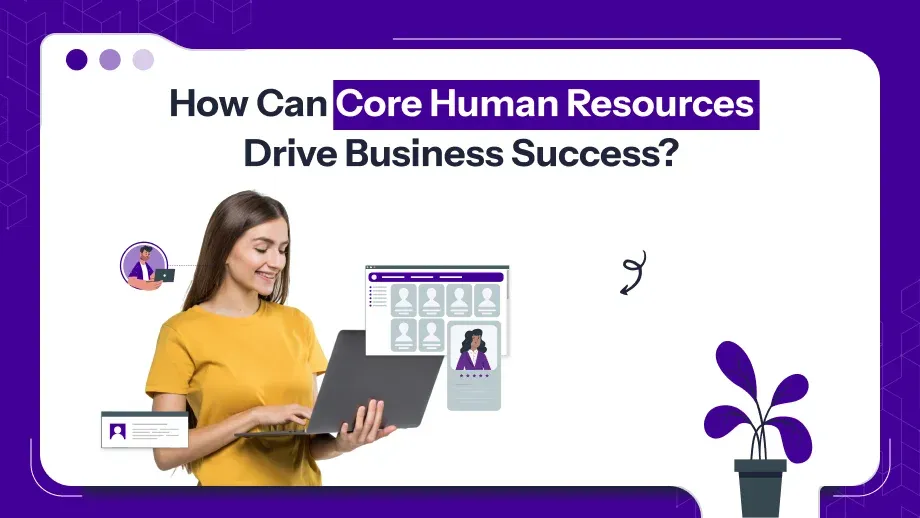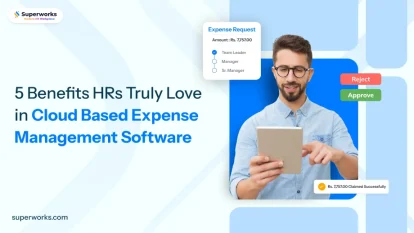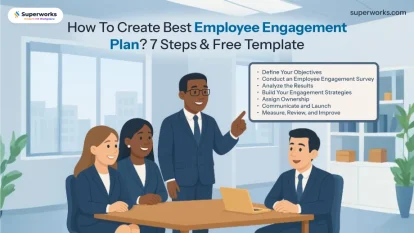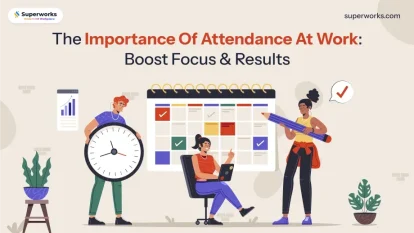
Core Human Resources (HR) is the basis for every company. It covers essential HR procedures such as payroll, employee records as well as benefits administration and conformity. A properly-structured core HR system helps ensure that operations run smoothly increases employee satisfaction and aids in the overall growth of your business.
In this post, we’ll look at the most core human resources functions, and their effect on the success of businesses, and also how organizations of the future can enhance the efficiency of these functions.
What is Core Human Resources?
Core HR is the essential processes that help smoothly. This encompasses employee data management along with the processing of payrolls as well as time tracking and benefits administration and monitoring compliance. As opposed to strategic HR which is concerned with the growth of culture and talent what is core HR? is the one who handles the administration aspect of managing the employee.
Key Characteristics of Core HR:
✔ Employee Lifecycle Management – From starting to leaving, Core HR manages employee information.
✔ Process Payroll & Compensation – ensuring that employees receive their wages on time and timely.
✔ Compliance Management – Adhering to labor laws and tax regulations.
✔ Attendance & Leave Tracking – Monitoring work hours and ensuring compliance with policies.
✔ Benefits Administration – Managing employee perks, insurance, and incentives.
Core Human Resources Functions That Drive Business Success
Employee Data Management
Employee data is the foundation of Core HR processes. It includes personal data, work history, pay information as well as tax information. Up-to-date and accurate information is vital to ensure the performance of employees as well as to making the right the right decisions.
Benefits of Efficient Employee Data Management:
✅ Reduces administrative workload.
✅ Improves workforce planning.
✅ Ensures compliance with government regulations.
Many businesses now use core HRMS to automate employee data storage, ensuring accuracy and easy access to records.
Payroll and Compensation Management
Payroll processing is a crucial core HR function since it guarantees that employees get immediately and quickly paid. An efficient core payroll and HR system reduces errors helps to avoid taxes and increases the level of satisfaction among employees.
Key Aspects of Payroll Management:
✔ Salary computation based on working hours.
✔ Tax deductions and statutory compliance.
✔ Automation to prevent payroll discrepancies.
Companies that integrate the best HRMS and payroll software in India experience fewer payroll errors and improved financial management.
Attendance and Leave Management
Monitoring the employees’ attendance as well as the policies regarding leaves is an integral element of core HR modules. The company must maintain an accurate record of attendance to comply with labor law and also to prevent disagreements.
Why is Attendance & Leave Management Important?
✅ Prevents absenteeism and productivity loss.
✅ Ensures compliance with labor laws.
✅ Automates shift scheduling and approvals.
Advanced HRMS solutions offer SaaS HR management system features, enabling automated tracking of attendance and leave.
Benefits and Compliance Management
Giving competitive benefits is essential for retaining workers. Core HR has the responsibility for employee benefits, including the pension plan, insurance afor health policies, and paid leave.
Why Compliance Matters?
✔ Non-compliance with labor laws leads to penalties.
✔ Ensures fair treatment of employees.
✔ Maintains a positive employer brand.
Businesses that adhere to India HRMS regulations minimize the risk of compliance and increase workplace efficiency and transparency.
Recruitment and Onboarding
Although recruitment is a part of Strategic core HR important role in directing recruitment processes as well as employee onboarding. The simplified onboarding process will help the new hires be integrated quickly and efficiently.
How Core HR Supports Hiring?
✅ Maintains a centralized applicant database.
✅ Automates background checks and document verification.
✅ Provides onboarding checklists for a smooth transition.
Organizations that leverage virtual HR for onboarding see increased employee retention and engagement.
Performance Management & Appraisals
Evaluations of performance help companies measure employee performance and match their business goals to employee targets. A structured Core HR process ensures fair and transparent appraisals.
Core HR’s Role in Performance Management:
✔ Establishing clear performance metrics.
✔ Facilitating 360-degree feedback and reviews.
✔ Linking performance with compensation and promotions.
Many businesses integrate HR business partner strategies to enhance performance management and employee engagement.
Optimize Your HR Operations with the Right Tools!
Streamline Core HR processes with automation, AI, and cloud-based HRMS. Improve efficiency, compliance, and employee experience today!
Core HR Processes That Optimize Workforce Efficiency
To enhance business success, companies must optimize their core HR processes through automation and strategic alignment.
The Role of Core HR in Business Scalability
✔ Automating HR functions reduces administrative burdens.
✔ Standardized processes ensure consistency in workforce management.
✔ Advanced analytics help in data-driven decision-making.
How Core HR Modules Support Organizational Growth?
✔ Payroll and compliance automation prevent legal issues.
✔ AI-driven employee engagement tools improve productivity.
✔ Self-service HR portals reduce dependency on HR teams.
Companies that adopt types of HR systems can streamline processes and improve overall efficiency.
Challenges in Core HR and How to Overcome Them
1. Managing Compliance Complexities
✔ Solution: Implement HRMS tools that auto-update legal requirements.
2. Reducing Administrative Workload
✔ Solution: Use HR technology to automate employee queries.
3. Enhancing Employee Experience
✔ Solution: Introduce HR solutions for seamless HR interactions.
Businesses that integrate the role of HRM in strategic management strategies can transform their HR operations for long-term success.
Future Trends in Core HR
The world that surrounds Core Human Resources is continuously changing, influenced by technology advancements, shifting expectations for employees, and the requirement for higher productivity. The old HR model, which focuses exclusively on processing payroll as well as record-keeping and compliance is fast changing into a dynamic tech-driven model that can improve the experience of employees and improve efficiency.
Businesses that keep up with core HR trends can streamline their HR processes, increase employee satisfaction, and achieve an edge in the market. Let’s look into some of the major future trends in Core HR, which are influencing contemporary workforce management.
AI & Automation in HR Operations
Artificial Artificial Intelligence (AI) has revolutionized core HR processes, by automating repetitive work, improving the accuracy of decisions, and increasing capacity to make decisions. From payroll calculation to checks for compliance AI-powered systems are helping to reduce mistakes made by hand and allowing HR specialists to work on the strategic goals.
✔ Employee Queries Management: HR chatbot by AI provides immediate answers to questions from employees which reduces HR workload and increases response times.
✔ Predictive Analytics for Retention of Employees: AI can analyze workforce information to forecast the rate of turnover among employees, allowing HR to adopt proactive steps to keep top talent.
Numerous companies are incorporating AI into their core values, to streamline core HR module processes to improve efficiency and improve the planning of their workforce.
Cloud-Based HR Solutions
The move to cloud-based HR systems can be a major game changer for companies regardless of size. Cloud-based solutions are flexible in remote access, remote accessibility, and capacity, which makes it much easier for businesses to oversee HR processes and not be tied to traditional software.
✔ Accessibility to HR data: HR staff and employees have access to HR data anywhere and have the seamless management of remote workers.
✔ Automated updates: Cloud-based solutions can update regulations for compliance automatically to ensure that companies maintain compliance.
A lot of businesses are embracing Indian HRMS systems that have cloud-based capabilities for payroll, attendance tracking, and the management of compliance efficiently.
Self-Service HR Portals
Human Resource systems of the future are shifting toward self-service portals which allow workers to take charge of their HR work without HR involvement. The core HR and payroll functions including payroll slip downloads, applications for leave, and tax declarations can now be accessible through self-service dashboards.
Why Are Employee Self-Service Portals Essential?
✔ This reduces administrative burden: The employee can edit their personal information, request time off, and keep track of the benefits they receive without relying on HR.
✔ Enhances the Experience of Employees: Increases the transparency of HR and lets employees have access to HR support at any time.
HR leaders integrating features of hr software in self-service portals see improved employee engagement and satisfaction.
Conclusion
Core Human Resources is the backbone of any successful organization. From the management of payroll to handling compliance, Core HR functions ensure the smooth running of business and employee satisfaction.
From the management of payroll to handling compliance, Core HR functions ensure the smooth running of business and employee satisfaction. By integrating HRMS with automation, organizations can boost efficiency, ease administration burdens, and boost overall worker management. As HR is evolving and evolving, implementing HR models and technology is essential for the long-term viability of HR.






